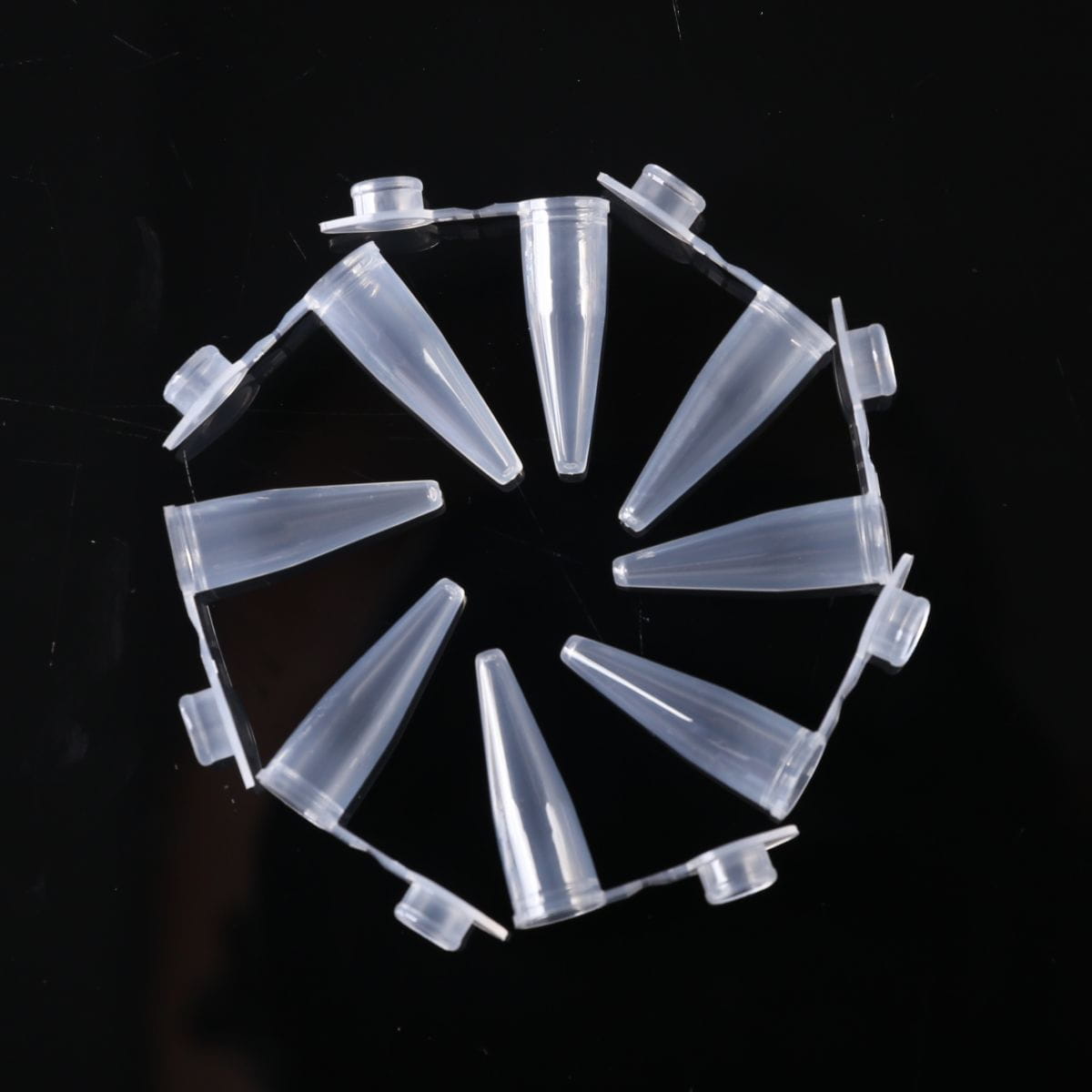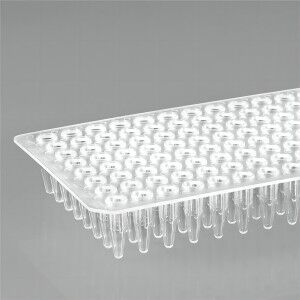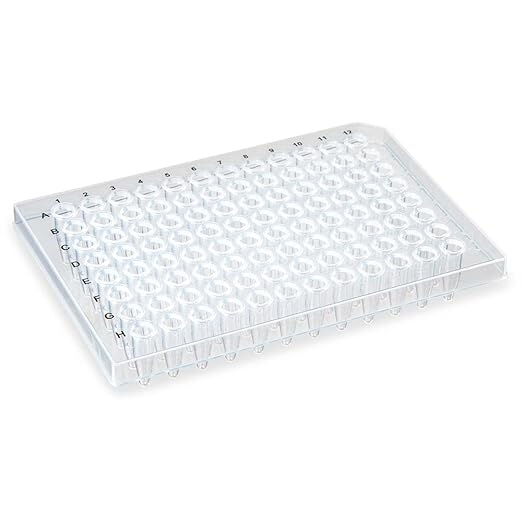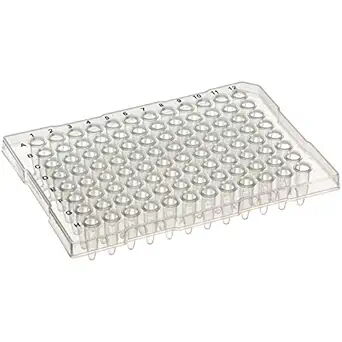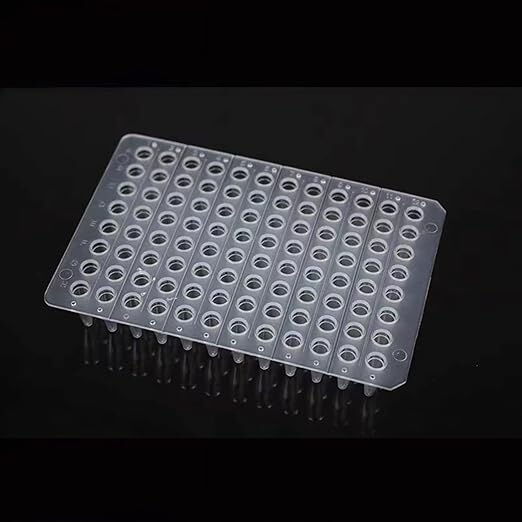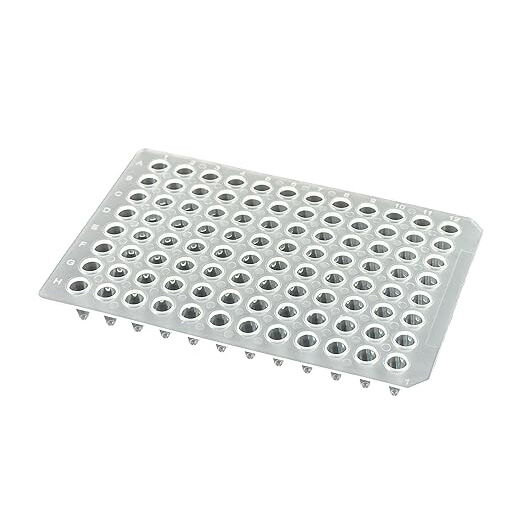PCR
Lab consumables for PCR experiments, such as PCR plates, single PCR tubes and 8-strip PCR tubes, are all made of polypropylene (PP) material for its superior chemical and temperature resistance. These PCR consumables can be ensured to be DNase-, RNase- and pyrogen-free and widely applied in disease screening and diagnosis and other experiments related to DNA and RNA.
Total 38 Records
PP Plastic PCR Plates, 0.2 mL, Non-Skirted, Autoclavable
Category: PCR Plates
Model no.PSB-240717-PP-05
Request a quote
Half Skirted PCR Plates, 96-Well, 0.2 mL, Ultra-Clear, PP
Category: PCR Plates
Model no.PSB-240717-PP-04
Request a quote
0.2 mL PCR Plate, Semi-Skirted, Flat Rim, Ultra Clear, PP
Category: PCR Plates
Model no.PSB-240717-PP-03
Request a quote
PCR 96 Well Plate, No-Skirt, 0.2 mL, PP Plastic, Transparent
Category: PCR Plates
Model no.PSB-240717-PP-02
Request a quote
Non-Skirted PCR Plates, 96 Well, 0.1 mL, DNA/RNA Free, Clear
Category: PCR Plates
Model no.PSB-240717-PP-01
Request a quote
In order to better cater to the needs of customers and ensure the accuracy and reliability of PCR experiments, we are committed to developing and manufacturing superior experimental consumables, including PCR plates, single PCR tubes and 8-strip PCR tubes. Our PCR products all have excellent uniformity and stability, guaranteeing accuracy in the sample processing and recovery. They possess a thin wall design with higher heat transfer efficiency and shorter cycle time, and can work with most commonly used PCR instruments. Moreover, these consumables are usually made of PP material which owns good chemical resistance and temperature resistance. Not only can they be commonly applied in heat sterilization, but they can also withstand the change of temperature during thermal cycling. According to the specific requirements, we need to choose products with different specifications and types to protect samples from pollution, provide reliable inspection data and ensure the smooth running of experiments.
PCR (Polymerase Chain Reaction) is a kind of biotechnology that amplifies DNA fragments in vitro, which can quickly copy trace samples millions of times for the following research and analysis. After decades of development, PCR has been widely applied in life science research, medical screening and diagnosis, food hygiene, environmental detection and other fields.
In the global medical device industry, IVD (In Vitro Diagnosis) is one of the segments with the highest proportion. And according to different principles of the inspection, in vitro diagnostic products can be divided into molecular diagnosis, immunodiagnosis, biochemical diagnosis and so on. Among them, molecular diagnosis, an important frontier in contemporary medical development, has obvious advantages with respect to sensitivity, specificity and accuracy. What's more, in the face of the global spread of the COVID-19 epidemic, the molecular diagnosis represented by PCR has been developed rapidly.
PCR (Polymerase Chain Reaction) is a kind of biotechnology that amplifies DNA fragments in vitro, which can quickly copy trace samples millions of times for the following research and analysis. After decades of development, PCR has been widely applied in life science research, medical screening and diagnosis, food hygiene, environmental detection and other fields.
In the global medical device industry, IVD (In Vitro Diagnosis) is one of the segments with the highest proportion. And according to different principles of the inspection, in vitro diagnostic products can be divided into molecular diagnosis, immunodiagnosis, biochemical diagnosis and so on. Among them, molecular diagnosis, an important frontier in contemporary medical development, has obvious advantages with respect to sensitivity, specificity and accuracy. What's more, in the face of the global spread of the COVID-19 epidemic, the molecular diagnosis represented by PCR has been developed rapidly.
